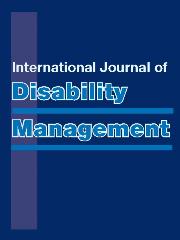Article contents
Corporate Integration Agreements and Their Function in Disability Management
Published online by Cambridge University Press: 23 February 2012
Abstract
The idea of corporate integration of people with disabilities, who often have become impaired in the course of their working career, has been reinforced by the German Social Code Book IX. With the implementation of the Section 83 and 84.2, preventive approaches such as integration agreements have put the emphasis on the role of social partners in the disability management process, that is, on to the employers' representative, the representative body of the disabled employees and the Works Council. A sectoral case study of the automotive industry, funded by the German government, was conducted to evaluate the integration agreement, using both quantitative and qualitative data. This article explores the goal-setting function of the integration agreement and its role in the management process.
- Type
- Articles
- Information
- Copyright
- Copyright © Cambridge University Press 2006
- 5
- Cited by




